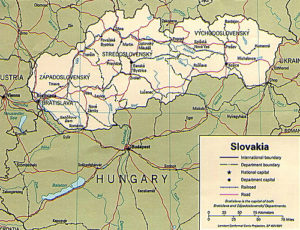 “It has become apparent in Brussels … just how vigorously the battle is being fought between those who envision a more powerful EU and those in favor of a nation state-led Europe. The front leads through all countries and all parties.”
“It has become apparent in Brussels … just how vigorously the battle is being fought between those who envision a more powerful EU and those in favor of a nation state-led Europe. The front leads through all countries and all parties.”
So stated Der Spiegel in July in its Issue 27. The name of the article is Brexit Aftershocks: An Inside Look at the EU’s Raging Power Struggle (Part 2).
Battle Status
At the moment, those against the formation of a federal Europe appear to have the upper hand in Europe’s ongoing tug of war. The Der Spiegel article added,
 “In mid-September, EU heads of state and government are to meet in Bratislava to consider what the EU’s future priorities will be. Slovakia will hold the rotating EU presidency and the country’s prime minister, Robert Fico, is a proponent of an EU made up of strong nation states, much like Hungarian Prime Minister Viktor Orbán.”
“In mid-September, EU heads of state and government are to meet in Bratislava to consider what the EU’s future priorities will be. Slovakia will hold the rotating EU presidency and the country’s prime minister, Robert Fico, is a proponent of an EU made up of strong nation states, much like Hungarian Prime Minister Viktor Orbán.”
And much like Poland’s Prime Minister.
Poland illustrates the regional dichotomy that currently prevails. The Polish ruling party is against more control in Brussels but at the same time calls for changes that demand something stronger.
Brexit Connection
The media in one Middle Eastern country and in Asia characterized her stance as a reaction to UK’s June decision. An Iranian news site briefly wrote,
“In an early response to Britain’s shock vote to exit the EU, Poland’s powerful rightwing leader Jaroslaw Kaczynski called for EU institutional reforms that would forge a confederation of nation states under a president in charge of a powerful common military.”
Channel NewsAsia, a TV channel based in Singapore, clarified what Kaczynsk, and his Central European neighbors, mean in its 27th of June, 2016 article, Poland wants ‘superpower confederation’ of European states .
“Europe should be a superpower, and nation states should retain internal sovereignty … His proposed European president would also be commander-in-chief of a powerful military force “with two great fronts — the east and the south.”’
Channel NewsAsia concluded its piece with this statement.
“Taking a different tack, the foreign ministers of Germany and France on Monday called for closer EU political integration based on three key policy areas — internal and external security, the migrant and refugee crisis, and on fiscal and economic cooperation.”
What’s Ahead
EU’s meeting of 27 European leaders in Bratislava, Slovakia’s capital, occurs on Friday, September 16, 2016.
In the ongoing debate, the Central European heads are said to be on the one side and the foreign ministers of France and Germany, along with Martin Shultz, German citizen and President of the European Parliament since 2012 — representing those wanting a Federal EU — on the other.
Yet, all these individuals want a stronger Europe and more powerful head of state who is commander-in-chief over a united military force. As Der Spiegel remarked, plenty of room exists for compromise.
It will be interesting to see how this plays out in 2017 and beyond.
Photo Credits: Tug of War by U.S. Marine Corps photo by Lance Cpl. Tyler W. Stewart, Slovakia map photo by damian entwistle; Licenses: CC BY-NC 2.0